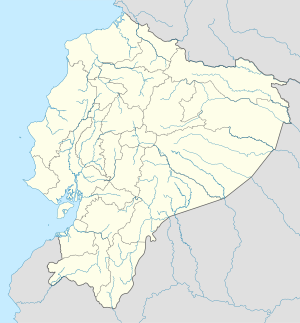|
Battle of Ibarra (1812)
The First Battle of Ibarra occurred in the vicinity of the city of Ibarra, Ecuador, between 27 November and 1 December 1812. The event, which is part of the Spanish American Wars of Independence, pitted the troops of the State of Quito against those of the Spanish Empire. The battle was a decisive victory for the Spanish and resulted in the disappearance of the short-lived nation that had been born in the territory of the Royal Audiencia of Quito, after the Quito revolt of 10 August 1809, which had declared itself independent from Spain on 11 October 1811. PreludeThe city of Quito was in open rebellion against Spain, and had created the independent State of Quito on 15 February 1812. The BattleBefore his arrival, the insurgents had fled north. The Patriot army was reorganized, gathering in Ibarra about 1,200 men under the command of Colonel Calderón. There they learned that Spanish troops, under the command of Colonel Juan de Sámano, were in Atuntaqui. Sámano cunningly proposed an agreement to the patriots, but they later realized his deception and prepared to fight in the nearby town of San Antonio on 27 November 1812. Despite having been close to victory, certain tactical errors caused the patriots to retreat again to Ibarra, making a last stand against the Royalists on 1 December, on the shores of the Yahuarcocha lagoon.[1] That day, the last insurgent stronghold was defeated and the captured patriots, after a summary trial, were put to death, although some were able to escape to Esmeraldas with the idea of joining the patriots of Cauca.[1] References
Links
|
||||||||||||||||||||||||||||||
